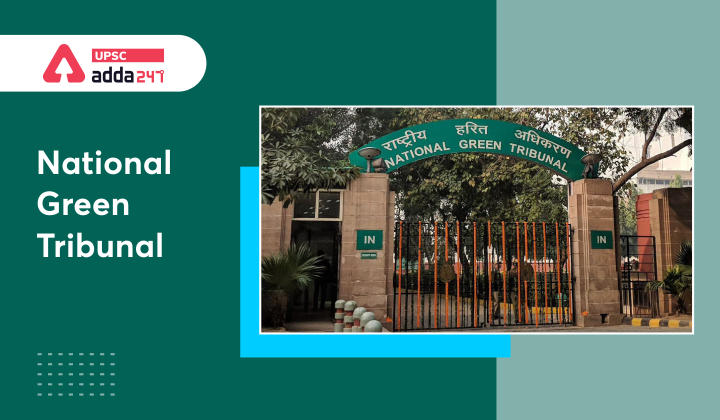Table of Contents
National Green Tribunal: Relevance
- GS 2: Statutory, regulatory and various quasi-judicial bodies.
National Green Tribunal: Context
- Recently, the Supreme Court has declared the National Green Tribunal’s (NGT) position as a “unique” forum endowed with suo motu powers to take up environmental issues across the country.
National Green Tribunal: Key points
- The court said the NGT need not wait for the “metaphorical Godot” to knock on its portal to flex its considerable muscles to save the environment.
- The apex court exclaimed that when substantial questions relating to the environment arise and the issue is civil in nature and those relate to the Act, the NGT can self-ignite action either towards amelioration or towards prevention of harm.
- The court has dismissed objections from the Centre, legal experts and even the court’s own amicus curiae who all argued against the NGT having with suo motu powers.
National Green Tribunal Chairman 2021
- The current national green tribunal chairman is Justice Adarsh Kumar Goel.
About NGT
- The National Green Tribunal has been established under the National Green Tribunal Act 2010 for effective and expeditious disposal of national green tribunal cases relating to environmental protection and conservation of forests and other natural resources.
- It is a specialized body equipped with the necessary expertise to handle environmental disputes involving multi-disciplinary issues.
- India became the third country in the world to set up a specialised environmental tribunal, only after Australia and New Zealand, and the first developing country to do so.
- Initially, the NGT is proposed to be set up at five places of sittings and will follow circuit procedure for making itself more accessible.
- New Delhi is the Principal Place of Sitting of the Tribunal (National Green Tribunal headquarters) and Bhopal, Pune, Kolkata and Chennai shall be the other four place of sitting of the Tribunal.
NGT Structure
- The National Green Tribunal comprises of a Chairperson, Judicial Members and Expert Members.
- The members shall hold office for term of five years, and are not eligible for reappointment.
- The Chairperson is appointed by the Union Government, in consultation with Chief Justice of India (CJI).
- A Selection Committee, formed by the union government, appoints the Judicial Members and Expert Members.
- There shall be at least 10 and at max 20 full time Judicial members and Expert Members in the tribunal.
NGT Powers & Jurisdiction
- The Tribunal has jurisdiction over all civil cases involving question relating to environment.
- Enforcement of any legal right relating to environment and giving relief and compensation for damages to persons and property and for matters connected therewith or incidental thereto.
- The Tribunal is not bound by the procedure laid down under the Code of Civil Procedure, 1908, but shall be guided by principles of natural justice.
- The Tribunal is mandated to dispose the applications or appeals within 6 months of filing of the same.
- While passing any order/decision/ award, it shall apply the precautionary principle, principles of sustainable development, the and the polluter pays principle.
Multidimensional Poverty Index 2021
NGT laws
- The Water (Prevention and Control of Pollution) Act, 1974,
- The Water (Prevention and Control of Pollution) Cess Act, 1977,
- The Forest (Conservation) Act, 1980,
- The Air (Prevention and Control of Pollution) Act, 1981,
- The Environment (Protection) Act, 1986,
- The Public Liability Insurance Act, 1991 and
- The Biological Diversity Act, 2002.




 TSPSC Group 1 Question Paper 2024, Downl...
TSPSC Group 1 Question Paper 2024, Downl...
 TSPSC Group 1 Answer key 2024 Out, Downl...
TSPSC Group 1 Answer key 2024 Out, Downl...
 UPSC Prelims 2024 Question Paper, Downlo...
UPSC Prelims 2024 Question Paper, Downlo...




